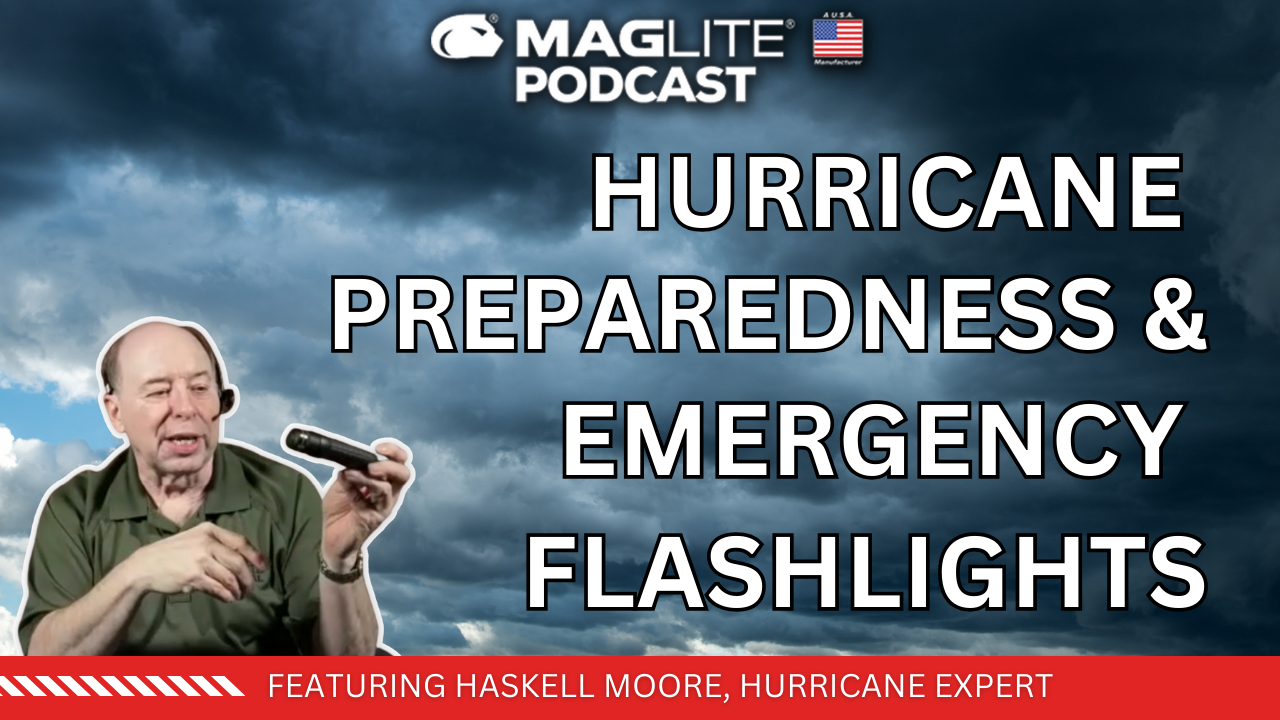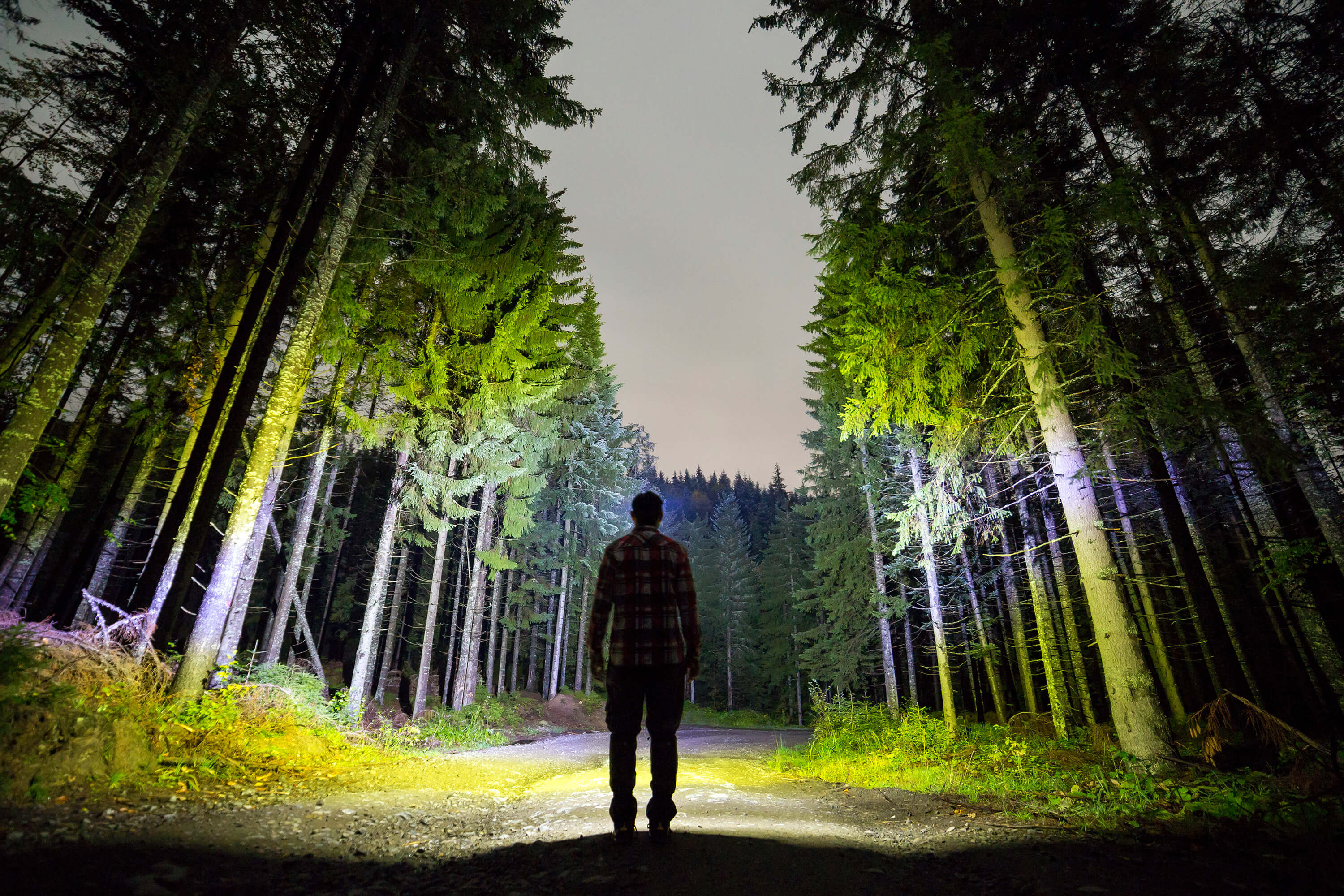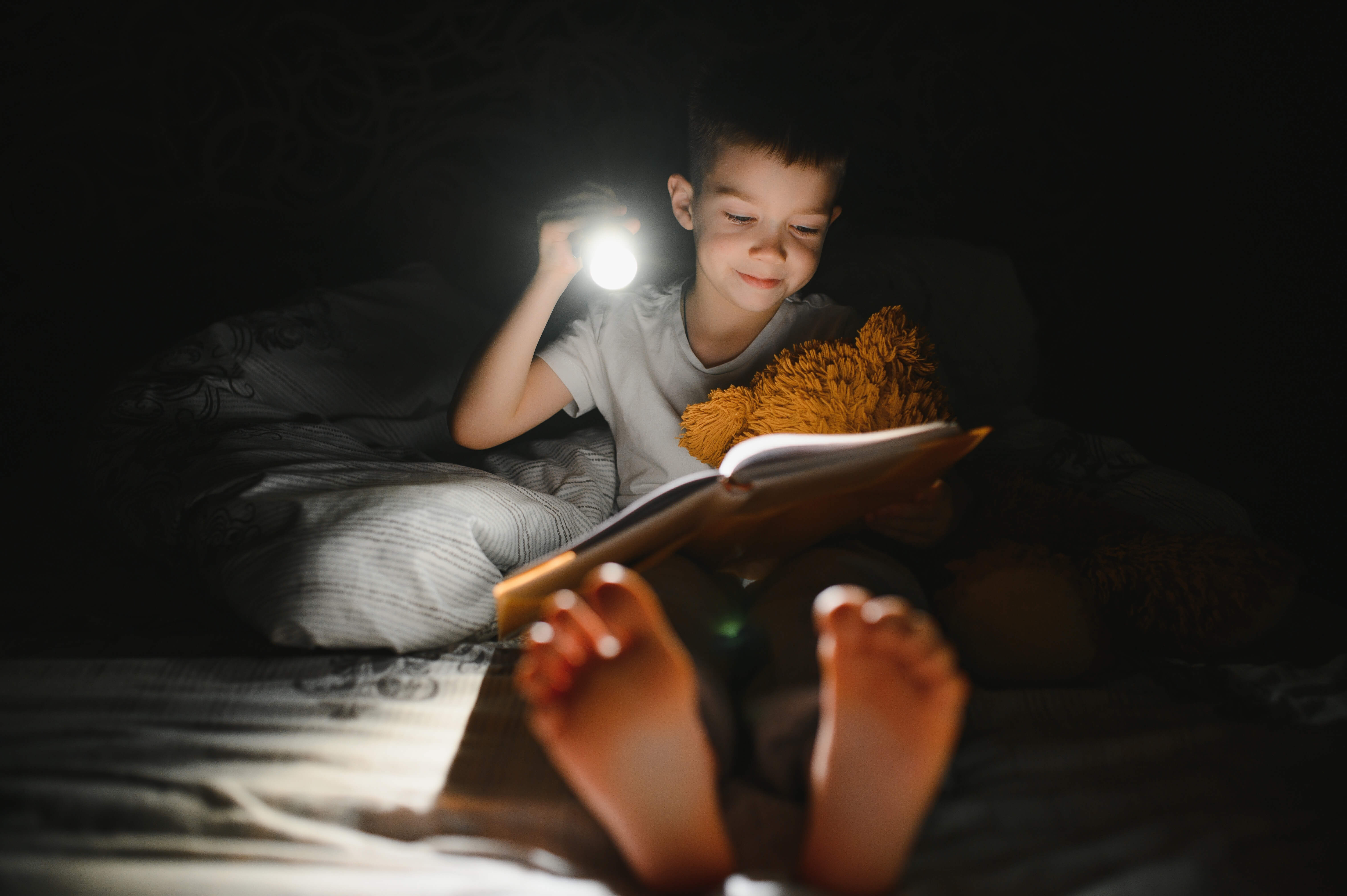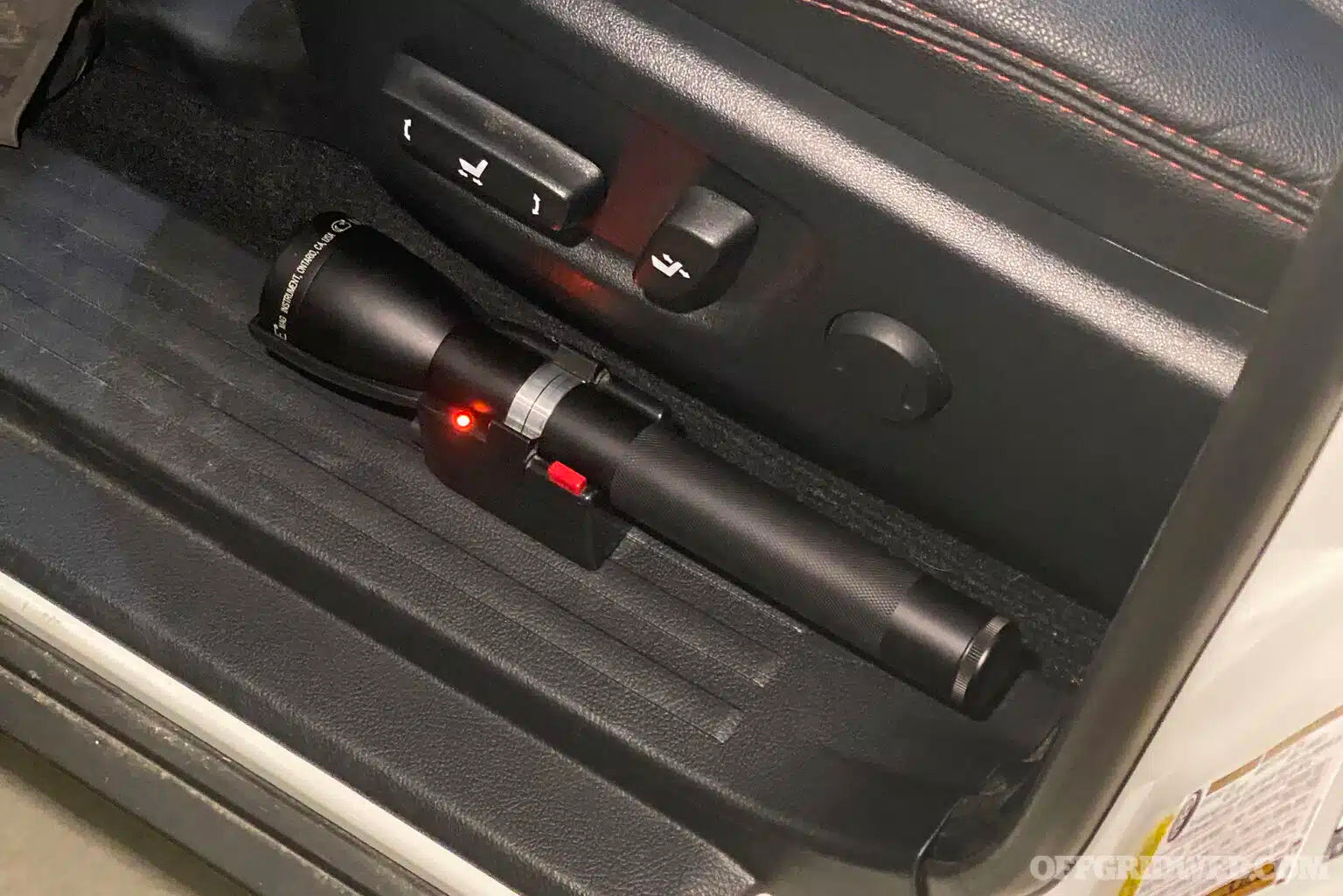Podcasts
Haskell Moore Discusses What To Look for in an Emergency Preparedness Flashlight
In this week’s podcast, Haskell Moore discusses what he looks for in an emergency preparedness flashlight and the benefits of rechargeable vs. battery-operated flashlights.
Learn more13 Hours: The Secret Soldiers Of Benghazi
In this Maglite podcast, Kris Tanto Paronto discusses the Film "13 Hours" and shares his firsthand account of what the movie got right. Kris Paronto “Tanto” is a former Army Ranger and private security contractor. His experience within the military and government contracting work spans 18 years. Kris is also an accomplished public speaker, author of The Ranger Way and The Patriot’s Creed, owner of Battleline Tactical, and host and partner of E3 Firearms Association. Transcript: Maglite: Welcome to the Maglite podcast. We actually have a great guest for doing tactical stuff. And of course I'm wearing my Maglite tactical patch. I like see right there. You like that, Kris: Kris? Uh, it looks pretty cool, dude. Looks cool. I like it. Maglite: So, uh, joining us here, Chris Paronto, Ranger veteran, Benghazi combatant, movie consultant, author, trainer, motivational speaker, founding member E3 Firearms Association. Man. Have you had a full life? Kris: That is and I'm, I'm only like 22 years old too, don't I? Look at it. It's okay. This is just stress guys. It is just lots of stress right Maglite: Here. Look at this. Look. Look, look at the gray there on me. I've been gray since I was 35 years Kris: Old. Let's is best blonde hair. Dude. We can fix that in the editing process. Christian, I know Christian can fix that in the editing process, man. He's good Maglite: Go. Yeah. All right. So those things. Ranger veteran Ben Oik and Batton. Movie consult, author, trainer, motivational speaker, founding member of E3 Firearms Association. Mm-hmm. <affirmative> husband. Kris: Aha. Most important. Husband and father. Maglite: Definitely husband and father. So what's your favorite role? Kris: Husband and father. Right. You know, I, I, it is now to say that it was when I was deploying I, um, no, I think my favorite role was, was being, being that person deploying, I think in life. It just all changes. Your, your priorities change. I, um, you know, people now you're a terrible father for saying that. Well, you know, I then, I guess I am for saying that, but I, I'm just, you gotta be honest and, and I don't think guys go overseas strictly for the money. I I don't think that's what part of it's the ego. It is part of it's seeing if you can prove yourself. And a lot of it's the brotherhood that you have with the guys right and left cuz you don't get that anywhere else. And a lot of, and then another part of it's just how lucky I was to see a lot of the world and see a lot of the world that you just can't get a tourist, a tourists visa for Maglite: <laugh>. Yeah. Sorry. Not go to Somalia anytime Kris: Soon. Yeah. I mean you go. But to see some of those things, and I, I think I've said it on other podcasts, the savage beauty of seeing bombed out buildings, of seeing 50 cow pop marks and concrete structures of, of just seeing those things. It, it, it is, it is very violent, but there is some beauty to it. It's, it's, and it's some surrealism. Um, but then it's also weird cuz you get used to it and you're like, well it is just how it, you know, I remember getting off of, uh, getting off a plane and, and uh, going to Moul, getting off a helicopter in Moo, getting in downtown Moo and then going to Soleman and driving to Kirk Cook. And once you get off, got a Kurdistan, you get into North Kirk Cook, you're back into the really, back in the hot zone again. It was like, man, I'm back home. You know, all the down telephone wires, all the drugs runner, all the dogs run around everywhere, all the, you know, just bullet holes and buildings and, and you know, watching for IEDs, vehicle born, front close devices, it's like, wow, I'm home. And even going to Yemen and getting off a plane in Yemen and getting to Sunan, getting out in some of the bad parts of Yemen, like, all right, well I feel back home. Yeah. Maglite: And I, I don't, I don't feel safe in downtown Seattle, LA or Portland. So Kris: It, it's getting very dangerous down there too. I gotta say it. I'm not gonna, I'm not gonna make, I Maglite: Don't go to big cities much and if I do, it's, I'm out of the hotel and into the cab or the Uber and I'm going Kris: Wherever I'm going, Maglite: You know, I don't, I don't walk anywhere in places like that. Uh, speaking of surreal, I I, I had seen the movie 13 hours when it came out. Mm-hmm. <affirmative> in the theaters and I didn't know anything about you. I, I think I'd seen you contemporaneously maybe on Fox News or something. Kris: Yeah. We're, I was doing the news rounds in those days, CNN, it in Fox, never MSNBC, but CNN, it in Fox every Maglite: Once and then, uh, I saw the movie and honestly from the very beginning my, my favorite character in the movie was yours because you were funny. Kris: Well that's, and you know, that's the truth. Now, now that you've gotten to know me a little bit, I am funny. I try to be Maglite: Funny. So there's a moment in 13 hours when a couple of guys come out of the bushes when you're in the compound and they've got their hands blown off or something. Kris: Yeah, no, no one Maglite: Did your character says to him, So you blew yourself up trying to brag us. Really? Did Kris: That Maglite: Actually, actually happen? Kris: Yeah, actually the movie made it more intense. Uh, then it, I mean more I was, showed me as being more angry when it actually happened. I took a knee, I'm on the backside of this building here. The explosion goes off here, the first one goes up. I didn't catch any shrapnel cuz explosion went this way and I got the, But you get over pressure the movies, when it says, you see the, the win there is that, that happens in the bigger explosion. You can actually see that over pressure with a grenade. You can't, but you can feel it. So, Maglite: So, so you actually, this moment actually happened and it was even more surreal. I did. But it appears in the movie we're gonna ask you about your experience with Mag products and, and the mag tattoo that we just sent you and other things. But we try to keep these short and compact. So we're gonna stop this right here. We'll reset, we'll come back for another Maglite podcast with Chris Paronto.
Learn moreHurricane Preparedness Tips for 2022
With hurricane season upon us, we look at ways to prepare your family with practical tips with Haskell Moore (author of Hurricane Preparedness For The Home And Family). In this interview, we discuss use cases for various flashlight models that include threat identification, damage assessment, and signaling for help. Transcript: Maglite: Welcome to another edition of the Maglite podcast. The man who wrote the book on preparedness, Haskel Moore, joins us again Haskel. It's been a really kind of slow storm season for 2022. Not that I'm complaining, <laugh>, unfortunately, there are a lot of areas that are suffering drought, Southern California, Nevada, Colorado, and other places like Texas, where there isn't getting enough rain. And of course, now you have Texas in certain places getting too much rain. Isn't that a story about rain, You know, there it's either not enough or too much. Um, so why are we off to such a slow start in 2022? Haskell: Well, there are a couple of factors that come into play as far as the, uh, uh, Atlantic hurricane season, one of which is wind shear. Uh, we've seen an inordinate amount of wind shear this year, uh, that, uh, you would normally not expect during a La Niña season, and we've seen a lot of Saharan dust that carried over into August when that's usually done, uh, I start to say done and dusted. Uh, it's usually done by the, uh, when you get into the August timeframe. So those two factors have contributed significantly to a slow start to the season. Maglite: Do you expect, or is this a reason to believe that the rest of the storm season in 2022 will be slow? Haskell: Well, not if you believe the National Hurricane Center. Okay. Right now they are, uh, predicting a 60% chance of an above-average season. They're calling for 14 to 20 named storms, six to hit 10 hurricanes, and three to five major hurricanes. And Colorado State University is actually calling for 18 named storms, made hurricanes, and four major hurricanes. Uh, the average season is 14 named storms, seven hurricanes, and three major. That is cat three or above hurricanes. So, no, that this is, uh, even though, and I think part of that is because we've been in what they call a hurricane drought. We haven't seen a hurricane in the Atlantic Basin for over 300 days, but I think that we're on the cusp of seeing that change. We're starting to see some, uh, activity out there. The dust has settled down, wind shear has settled down. The water is hot. So I think we're, we're in for a storm this year somewhere in the U.S. Maglite: So if we're in for a storm or storms, what do people do to get prepared? Haskell: Well, you know, we, uh, uh, this is a Maglite podcast, so it's the foregone conclusion. We're gonna talk about a Mag. Uh, one of the first things you need to do is order this flashlight. This is the Maglite ML300L four-D LED, a long-running flashlight that produces over a thousand lumens of light. Uh, it is excellent for, uh, inspecting your home after a storm to see where the damage is, especially on the roof. It's great for watching, for rising water, and looking for other hazards. And it's really great for signaling for help. You know, if, if you're out in a typical after hurricane situation, and I look, grew up in the Houston, Texas area, so, uh, I've seen several of those, and it's almost a foregone conclusion after a, a hurricane. Uh, you can count on the power being out. This allows you to signal at night when there's no other ambient light. Uh, if you're in your home sitting on top of your car, a light like this can be a lifesaver. It's water resistant, it's rugged, and it's reliable. And of course, Maglite is manufactured here in the United States. Maglite: So your rule of two though is don't just have one of anything. Right. So Yeah, absolutely. You have that one full-size Maglite. Maybe you want a smaller one that's like the pocket size. Haskell: Right. Well, I also have this one, uh, this is a, uh, two-cell ML300L and then over here I have the, one of my favorite pocket lights is the XL50. Uh, I had not seen this light until recently, uh, a few years ago. And I started carrying this thing, and this is my EDC light every day carry, uh, runs on three AAA cells that don't use the expensive big CR 2032 or, uh, which can be hard to find three. Yeah. Maglite: In Haskell: A storm situation. Yeah, absolutely. You want Maglite: Something common. Haskell: This is a fantastic light, a lot of light on high, and you can cut the thing down to a lower level and it'll last over, uh, I believe 20 hours plus on low mode. And then, yeah, so Maglite: You, we wanna have a couple of different choices, obviously, water, food, medicine, and medical supplies, but also you get, need a source of light and your cell phone is not it, especially in an emergency situation when the power goes out, the last thing you wanna do is use a battery on your cell phone as a flashlight. Haskell: Absolutely Maglite: Doesn't. Very effective as a flashlight either. All right. Haskell Moore literally wrote the book, Hurricane Preparedness for Home and Family. Uh, he is a great Maglite contributor. We are glad to have him here on the Maglite podcast, and we thank him for his time. Haskell: Thank you.
Learn moreEpisode 46 - Helping Others / Make Safety Your Top Priority - Ft. Haskell Moore - Part 7
Back here on another edition of the Maglite podcast about safety and preparedness with Haskell Moore. Haskell explains about chapters, seven and eight in his book, Help Others Whenever Possible and Make Safety Your Top Priority!
Learn moreEpisode 45 - The Importance of Backup Plans - Ft. Haskell Moore - Part 6
On this Maglite podcast it’s all about preparedness and safety for the home and family. We are joined by Haskell Moore, author of Hurricane Preparedness for the Home and Family. Haskell talks about hurricanes and flooding, and how it can turn off the power for long periods of time. He then explains his experiences with disaster’s and why you should always have a plan B.
Learn moreEpisode 44 - Two is One, and One is None - Ft. Haskell Moore - Part 5
The Maglite podcast is back with another episode with Haskell Moore author of the book, Hurricane Preparedness for the Home and Family. Haskell talks about water and your disaster preparedness kit. He explains need for water for drinking, sanitation and hygiene, flushing, toilets, cooking and other needs.
Learn moreEpisode 43 - Don't Cut Corners - Ft. Haskell Moore - Part 4
Another episode of about being prepared here on the Maglite podcast and the author of Hurricane Preparedness for The Home and Family, Haskell Moore talks about flashlights and what you're looking for in a flashlight. Haskell explains the chapter five comments in his book, two is one and one is none theory of disaster prep.
Learn moreEpisode 42 - The Preparedness Mindset - Ft. Haskell Moore - Part 3
We're back with another episode about preparedness with the author of Hurricane Preparedness for the Home and Family, Haskell Moore. Haskell explains why everybody should have a preparedness mindset. He discusses buying items on online and before they are in need, and why the number one item in your disaster kit should be a flashlight (actually 2 flashlights) and batteries.
Learn moreEpisode 41 - The Louisiana Cajun Navy - Ft. Haskell Moore - Part 2
We're joined once again by disaster preparedness expert Haskell Moore. Haskell, explains about why he dedicated the book in part to the Cajun Navy and why the Cajun Navy recently received a shipment of Maglite’s. Haskell tells us about how they love the ML300L 4D LED Maglite.
Learn more













